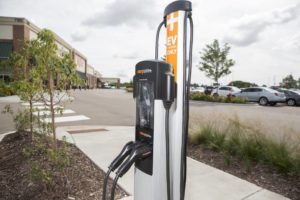 A regulation has forced Americans to pay the corporate income taxes of an industry that Congress exempted from that tax in 1986, an outrage I have chronicled for years.
A regulation has forced Americans to pay the corporate income taxes of an industry that Congress exempted from that tax in 1986, an outrage I have chronicled for years.
Now a federal court has determined that this taxpayer abuse is worse than I reported. In fact, it’s twice as bad.
Yet despite the latest court ruling in a long-running case, this rip-off may continue.
The idea that any business could force you to pay its taxes may strike some readers as beyond belief. When I first heard about this more than a decade ago my skepticism meter hit high alert. Then I started reading the laws, regulations, and official proceedings, none of which made the news. I’ve been writing about it ever since, hoping the public will demand an end to this abuse.
The way it works is simple: The Federal Energy Regulatory Commission (FERC) sets the rates that monopoly pipelines can charge. The rates are based on all of their costs—people, equipment, taxes, and the corporate income tax. But that last expense is fake. The pipelines […]

Hy-Vee, a Midwestern grocery chain, installs charging stations at all its new locations. The number of commercial charging stations is growing quickly.
Credit: Ackerman and Gruber/Wall Street Journal
In 2015, about one in every 150 cars sold in the U.S. had a plug and a battery. But mass adoption of electric vehicles is coming, and much sooner than most people realize.
In part, this is because electric cars are gadgets, and technological change in gadgets is rapid.
One big leap is in batteries. A typical electric vehicle today costs $30,000 and will go about 100 miles on a charge, if that. Within a year, you’ll be able to get double that range for just a little more money.
Tesla Motors Inc. is the standard-bearer, promising a Model 3 vehicle meant to appeal to the masses at $35,000 without incentives and more than 200 miles of range. By comparison, the average […]










